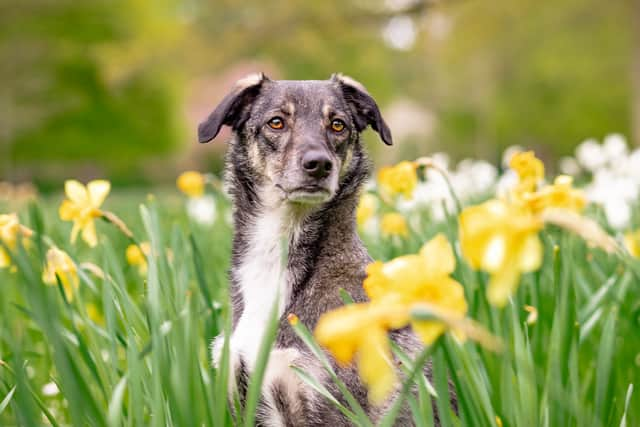10 toxic spring flowers pet owners should avoid - including daffodils, tulips and bluebells
and live on Freeview channel 276
Spring is the season to head outdoors, explore scenic parks and woodlands for pops of lavender and cherry blossoms. But could the great outdoors be harbouring plants and flowers potentially toxic for your pets?
Pet owners across the country might be in for a shock when they see the number of spring blooms that could be harmful for their pet. From unsuspecting daffodils to pretty bluebells we have rounded up the flowers to avoid this spring.
Advertisement
Hide AdAdvertisement
Hide AdAnd with early spring blooms already being spotted around the country, Chris Ashton at The Sun Vegas has detailed 10 common spring plants and flowers that are potentially dangerous for your pets.
Chris Ashton at The Sun Vegas said: "As the spring season brings new growth and colour to your local area, pet owners should be aware of the potential danger of certain flowers and take the necessary steps to protect their furry friends.
“Protect your pet and stay informed about your local spring plants - research what to look out for including the best areas when walking your pet free from hazardous shrubs and flowers. And remember if you are somewhere potentially dangerous, always keep your pet on a lead, so there’s still enjoyment from the great outdoors."


10 toxic spring plants harmful to animals
Daffodils
Daffodils contain toxins that can be harmful to pets if ingested. The bulbs and flowers of daffodils contain lycorine and other alkaloids which can cause gastrointestinal distress, excessive salivation, vomiting, and even death if ingested in large quantities.
Tulips
Advertisement
Hide AdAdvertisement
Hide AdTulips contain a toxic substance called tulipalin A and B, which can cause digestive issues such as vomiting, diarrhoea, and abdominal pain in pets if ingested. In extreme cases, tulip poisoning can even lead to death.
Ivy
Ivy is dangerous to pets because it contains a toxic sap that can cause skin irritation, vomiting, and difficulty breathing in pets. It can also cause contact dermatitis, which is an allergic reaction to the sap. Additionally, the leaves of ivy can contain calcium oxalate crystals, which can cause an intense burning sensation and swelling if ingested.
Bluebells
Bluebells are poisonous to pets because they contain a toxic alkaloid called lycorine. This toxic alkaloid can cause vomiting, diarrhoea, excessive salivation, and even death in some cases if ingested. Pets may also experience difficulty breathing and weakness if they come in contact with the plant.
Yew
Yew trees are potentially dangerous to pets because they contain a toxic ingredient called taxine. If ingested, this chemical can cause vomiting, diarrhoea, lethargy, and even death in some cases. For this reason, it is important to keep pets away from yew trees, especially if they are small or more prone to chewing on plants.
Hyacinths
Advertisement
Hide AdAdvertisement
Hide AdHyacinths are a type of bulb plant that contain a compound called lycorine. This compound is a toxin that can be harmful to pets if ingested. It can cause vomiting, diarrhoea, excessive salivation, and even death if the pet ingests enough of it.
Calla Lily
Calla lilies contain calcium oxalate crystals, which can cause irritation and burning to a pet’s mouth, throat, and digestive tract if ingested. The irritation can lead to vomiting, drooling, difficulty swallowing, and even breathing difficulty.
Azaleas
Azaleas contain a toxin called grayanotoxin, which can be deadly to pets if ingested. This toxin affects the nervous system, causing vomiting, diarrhoea, increased salivation, and difficulty breathing. In severe cases, it can cause coma and death.
Snowdrops
Snowdrops contain a type of alkaloid called galantamine, which is toxic to pets if ingested in large amounts. Some animals may experience vomiting, diarrhoea, seizures, and other severe health issues if they eat large amounts of the plant.
Crocus
Advertisement
Hide AdAdvertisement
Hide AdCrocus plants contain a toxin called colchicine that is toxic to pets if ingested. Ingesting even small amounts of the toxin can cause vomiting, diarrhoea, abdominal pain, lethargy, and even death in some pets.
